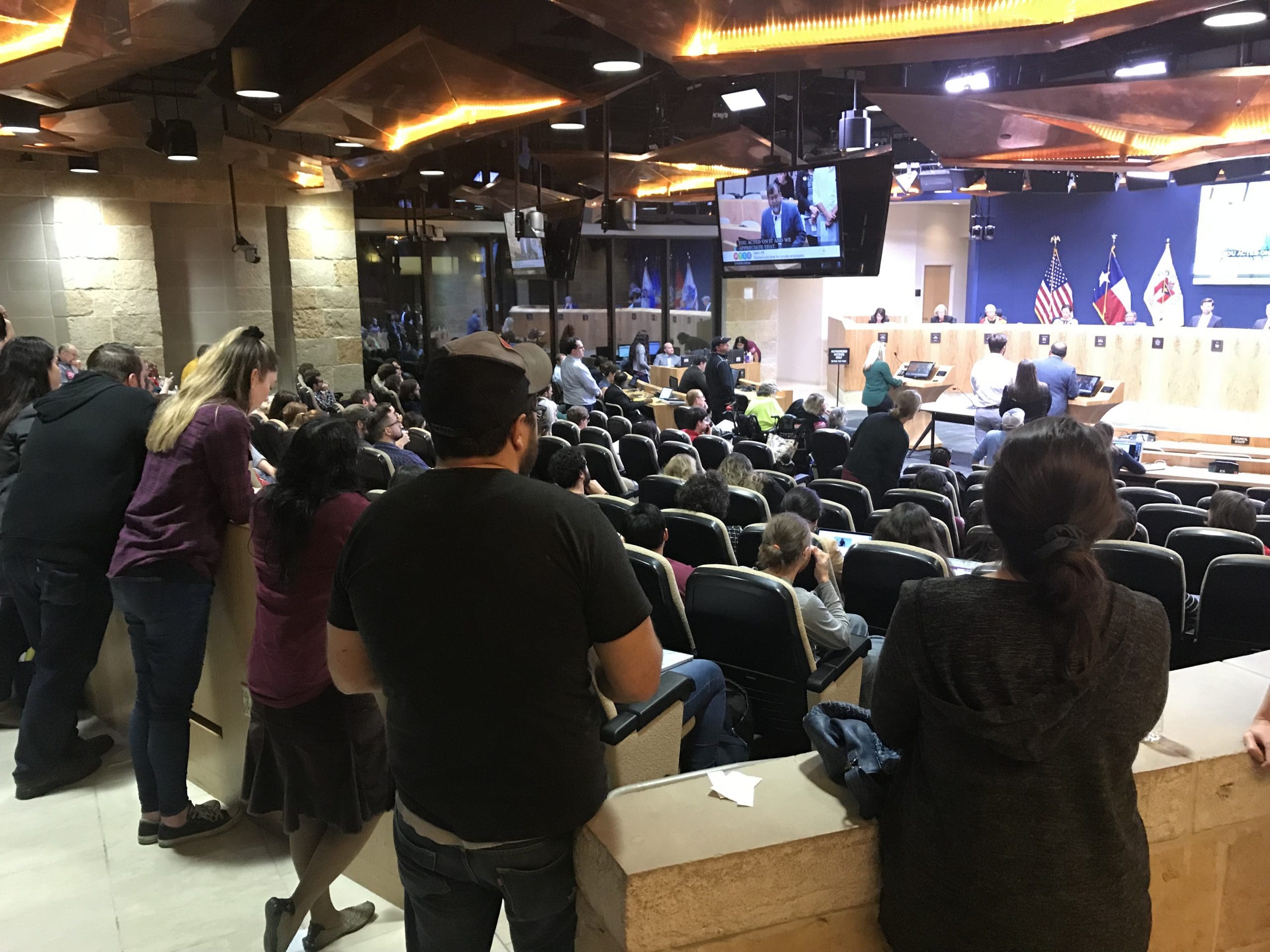Just after midnight on Thursday, the Austin City Council passed an ordinance allowing all Austin workers to earn paid sick time, making Austin the first city in Texas – and the first city in the South – to adopt a paid sick days ordinance. We’re a proud member of the Work Strong Austin coalition, which successfully advocated for this long-overdue policy for many months before the vote.
CPPP’s Executive Director Ann Beeson joined hundreds of Austinites who turned out to testify on the ordinance at City Hall, with an overwhelming majority of testimony being in favor of passing it.
The ordinance, which passed by a Council vote of 9-2, allows all workers to earn one hour of paid sick time for every thirty hours worked to use for themselves or to care for a family member.
Key Provisions of Austin’s Paid Sick Leave Ordinance:
- The ordinance covers private sector workers, including full-time, part-time, and temporary employees who performs at least 80 hours of work within Austin city limits in a calendar year. The ordinance does not cover government employees, or non-employees like unpaid interns or independent contractors.
- People who work for companies with more than 15 employees will be able to earn up to eight paid sick days (64 hours) per year, and people working for an employer with 15 or fewer employees will be able to earn up to six paid sick days (48 hours) per year.
- Most businesses must begin providing paid leave on October 1, 2018. Very small businesses of five employees or less must begin providing paid leave on October 1, 2020.
- All workers will be able to use accrued paid sick leave to care for themselves, a family member, or anyone that is seen as the equivalent of a family member to deal with a physical or mental health issue (including preventative care) or a domestic abuse, sexual assault, or stalking incident.
Check out Work Strong Austin’s new fact sheet (in both English and Spanish) on the ordinance for more details!
Many of the rules governing Austin’s paid sick leave ordinance still need to be determined by the City of Austin Equal Employment Opportunity/Fair Housing Office (EEO/FHO), which will also be required to report each year to the City Council on implementation and enforcement of the law.
CPPP provided key data and policy analysis to help council members, business leaders and advocates evaluate the paid sick days proposal. Not only will the ordinance boost the health and financial stability of Austinites (after all, three days of paid sick time is equivalent to an entire monthly grocery budget), but an important, independent cost-benefit analysis by the Institute for Women’s Policy Research also showed that it will provide over $4 million in annual net savings to businesses.
